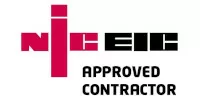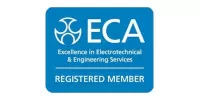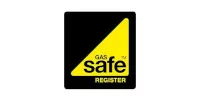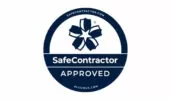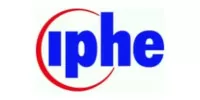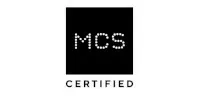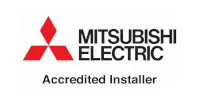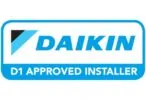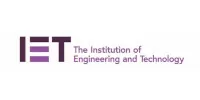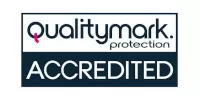Electrical Inspection Condition Report (EICR)
It is a requirement of BS761 (the electrical wiring regulations) are periodically inspected, this provides an engineering view on whether or not the installation is in a satisfactory condition where it can continue to be used in a safe way.
Electricity is not visible and most of the installation is concealed in containment, voids and the fabric of the building it serves. Components can deteriorate over time and signs of damage or wear and tear can often be out of sight. As installations age the risk of failure increases.
The main issues in a system that has deteriorated are, the risk of live parts becoming accessible, the frisk the protective devices fail to provide automatic disconnection in the event of a fault and the increase risk of Fire,
One of the main causes of fires in businesses and homes is due to faulty electrical installations, additional protective devices to detect Arcing which can lead to electrical fires have been introduced, but having regular checks can reduce the risks also.
Electrical Inspection Condition Reports are recommended to be carried out in all installations, but for many this is now a statutory requirement. The guide and frequency depends on the type of installation, the use of the installation, the environment the system is installed in, the age of the installation and would be determined by the designer of the installation in the first instance and subsequently the inspector of the installation on the following condition reports. seeking advise is the best way to start, please get in touch if you have any questions.
It is important to note that the person carrying out the inspection is competent having suitable training and qualifications to carry out the inspection. With regards to domestic premises it is also noted that some electrical works require the contractor to be part of a domestic competency scheme. At BSEFM all of our engineers are fully qualified to carry out the inspection of electrical installations.
Our Reviews
Guide to recommended initial frequences of inspection of electrical installations
Type of InstallationMaximum period between inspections and testing
| Domestic Accommodation – general | Change of occupancy / 10 years |
| Educational establishments | 5 years |
| Industrial | 3 years |
| Offices | 5 years |
| Shops | 5 years |
| Laboratories | 5 years |
| Hospitals & Medical clinics – general areas | 5 years |
| Hospitals & Medical clinics – medical areas | 1 year |
| Cinemas | 1-3 years |
| Church installations | 5 years |
| Leisure complex (excluding swimming pools) | 3 years |
| Places of public entertainment | 3 years |
| Restaurants & Hotels | 5 years |
| Theatres | 3 years |
| Public Houses | 5 years |
| Village halls / community centres | 5 years |
| Agricultural and horticultural | 3 years |
| Caravans | 3 years |
| Caravan parks | 1 year |
| Highway power supplies | 6-8 years |
| Marinas | 1 year |
| Fish farms | 1 year |
| Swimming pools | 1 year |
| Emergency Lighting | 3 years |
| Fire alarms | 1 year |
| Launderettes | 1 year |
| Petrol filling stations | 1 year |
| Construction site installations | 3 months |
Inspection and Report outcomes
The periodic inspection and test comprise a detailed examination of the installation together with the appropriate tests. The tests made are to confirm Polarity, continuity of the circuit protective conductors, integrity of the circuit insulation and the correct operation of the circuit protective devices, amongst other things.
Consultation prior to carrying out inspection and testing
Consultation with the client prior to the inspection being carried out is essential to determine and agree the extend and limitations of the inspection. Some tests may not be possible due to operational constraints and the practicalities of the works required to carry out the test. These limitations would be noted on the certificate.
It is also beneficial to view documents of previous maintenance, routine tests, original designs, EICRs and certificates for any other electrical works which have been carried out in the premises.
The inspection and testing shall be undertaken in such a way as to minimise the disturbance of the installation and inconvenience to the user.
In addition to recording the installation details and the results of the tests performed, the report will list any observed defects and will summarise the condition as satisfactory or unsatisfactory.
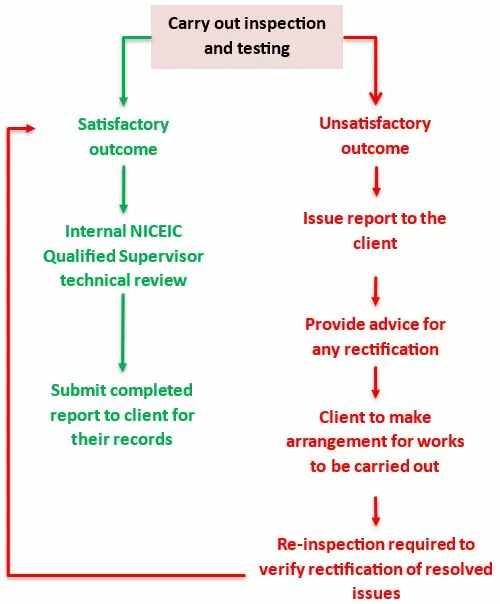
An EICR report is classified using the following codes:
- C1 – ‘ danger is present’, risk of injury is likely and immediate action is required
- C2 – potentially dangerous and remedial action is needed urgently
- C3 – improvement to your electrical system is recommended. C3 is the only classification that can appear on a report and still pass the EICR test
- FI – Further investigation required
- All our reports are submitted to NICEIC for approval and recorded.
Where C1’s are discovered these are isolated to mitigate the risk of immediate injury and the client will be advised of the required rectification works and further instruction sort, however if only a minor rectification is required this will be carried out whilst on site. For all other defects noted a quotation will be provided for the clients consideration prior to implementation. On completion of
defect rectification, a new certificate would be issued recording a satisfactory outcome with the date of next inspection advised.
“After a laborious search and to my relief, I found BSE|FM to help with answers to my heating problems. You visited my property promptly when we had a useful discussion and you looked over our home to size up our requirements. A quotation was received and within weeks the installation and commissioning was being carried out by your team swiftly, efficiently and with great courtesy and to the schedule as quoted. Any queries I had were always answered and dealt with satisfactorily. The lead engineer was a pleasure to deal with, as was the rest of the team. I would confidently recommend BSE|FM to anyone who has an interest in having a new heating/air conditioning or air source heat pump system installed.”
“BSE|FM were recommended to us by the owner and operator of the Great Northern Hotel at Kings Cross. BSE|FM have installed and maintained heating, ventilation, air conditioning and power systems for a number of years, helping us manage the plant through a combination of vast professional knowledge combined with the ability to diplomatically drive forward our agenda without fear of upsetting incumbent teams.”
Is it required by law?
- The law states that privately rented accommodation must provide a valid EICR before any property can be let. To continue good practice we also recommend that all portable appliances being provided by the landlord are PAT tested, whilst it is not specifically mandated the portable appliances are tested by a landlord, the landlord has a duty of care to ensure the premised and all of the equipment provided as part of the tenancy is safe, by undertaking portable appliance testing landlords can fulfil this duty of care.
- For landlords and private homeowners Part P of the building regulations apply and all new installations, and some alterations to existing properties require building control notification. It is becoming more common place that during the sale of a property, evidence of notification of these works and periodic inspections is requested, whilst the Part P notification is required by law the provision of an EICR has is not yet.
- It is also worth taking into consideration that some insurance companies are increasingly asking for proof that routine maintenance has been conducted before a claim is processed, and can lead to the claim being refused upon this basis. We recommend your insurance company is contacted to ensure you are covered.
If you are unsure and would like advice on any of the EICR rules or wish to express an interest in our engineer completing an inspection, please contact us.
Sectors covered but not limited to:
- Offices
- Restaurants
- Hotels
- Leisure facilities
- Listed Buildings
- Education providers
- Private homes
- Retail
- Healthcare
Whatever your requirements are, our skilled workforce means you will receive an extremely high quality of service.
We promise you:
- Highest standards of work through the whole process
- All our engineers are trained to the highest industry qualifications
- All work meets regulations
- Highly competitively priced
If you’re unable to find what you are looking for, call us today to discuss your specific needs and one of the team will be happy to assist you.
Contact Us
If you would like any further information about our expertise and range of services, please get in contact with our team today. Call our Central London office on +44 207 953 4047, our Birmingham office on +44 121 295 6613 or our Haywards Heath, West Sussex office on +44 1444 390 593.
Talk to Our Expert Team
Do you have any questions about our building and consultancy services? We welcome your questions, requests and comments. Get in contact with our experienced team either by phone, by email or by using the enquiry form. We aim to respond to all enquiries within 24 hours.

